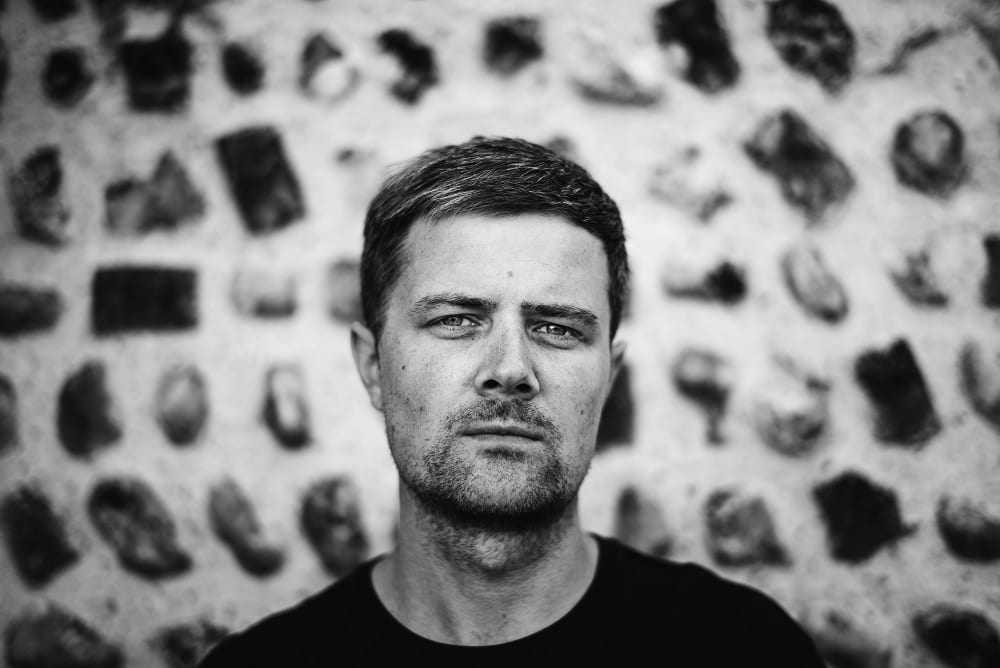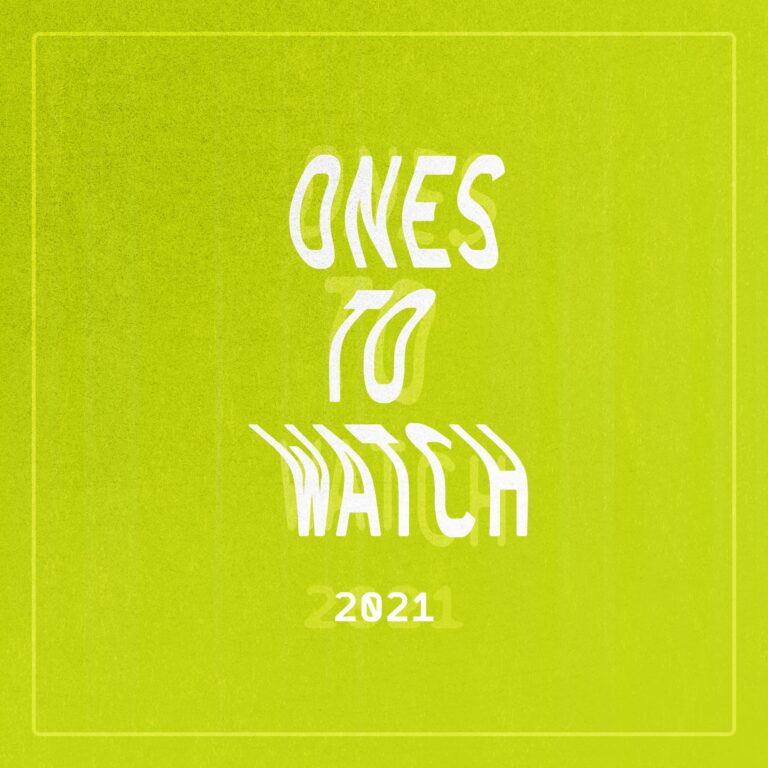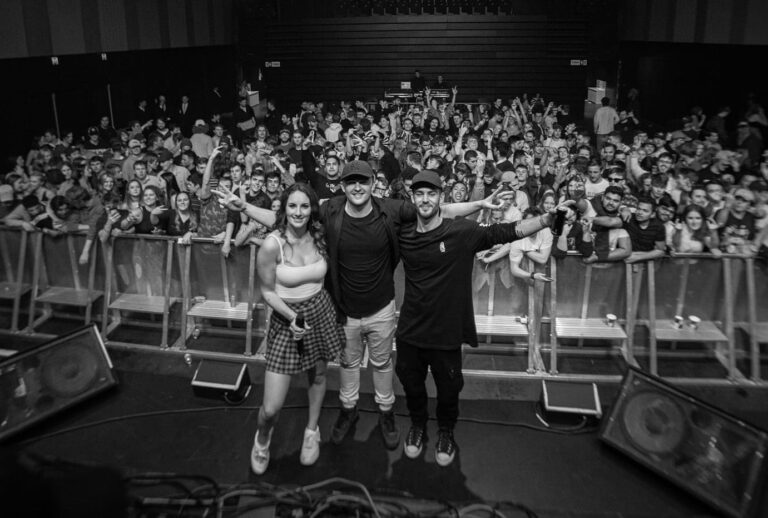Photograph: Benjamin Gordon
There’s no denying that the past year has been a testing time. Spending more time at home with increased amounts of uncertainty has left a lot of people feeling uninspired. It’s something Workforce knows all too well. As an artist with a reputation for his intense work rate, 2020 presented a significant challenge for his creative output.
Despite its difficulties, the past year has given Jack Stevens time to reflect on the goals he wants to reach musically, and the energy he wants to put into projects going forward. From pushing his Must Make podcast, which offers a valuable resource of positivity and creativity for others, to teaching himself how to animate and keep his productivity high during a time when there is not much of it around.
But one of the biggest reflections has been where to take his music next. After working together for 14 years, the decision to end Spectrasoul in October 2020 was arguably one of the most important. Not because of any lingering negativity, but because it was the necessary step to take Workforce to the next level. A direction where there is no pre-existing expectation of what the sound should be, and no negative backlash for trying something different.
Workforce’s latest Moods EP on Critical Music is representative of this mindset. Without doubt his darkest, heaviest work yet, it’s a signal to everyone that the Workforce project will keep you guessing. On the back of the release, UKF caught up with the producer to chat about the changing landscape of music and the various reflections this has provoked.
A new year with new possibilities, but how has 2021 started for you personally?
I worked really hard the first three weeks of the year, then I was like – I need a rest… I need to stop and get some ideas, read some books, watch some things. I’m trying to be less harsh on myself because before I would’ve been going to the studio every day regardless. But actually, at a certain point your brain is fried because you’re stressed. Everything sounds shit when that happens, so I’m trying to give myself a few more days off.
It’s easy to put pressure on yourself to be constantly active. You need some downtime.
100%. One of my resolutions this year is to be more relaxed with my schedule. Taking a break from your work is important as it allows you to replenish your energy. Also, with the way things are currently, my drive to make cool, creative ideas has never been lower. I’ve probably written half as many tunes in 12 months as I would normally.
You seemed pretty busy last year with Late Night Soundtrack?
I don’t feel like I did much last year… I already had the tunes ready to go before the pandemic hit. It was more about focusing on how to package it – from planning the pacing to teaching myself animation. I saw it as a positive opportunity to fully consider the project. I only wrote a couple of tunes during the first lockdown. I put most of my energy into the Must Make podcast. I haven’t done one since July though as I’ve been back in studio…
I’ve seen a lot of producers post on their socials recently saying they’re struggling to motivate themselves.
It’s a case of purpose. Looking at drum and bass, it’s made with the intention of being played loud in a room full of people. It’s about creating moments. So for me, when writing music recently I’ve been thinking differently about how I can create other moments. It’s actually some of the main feedback I’ve had from people regarding the podcast. People have been saying – from listening to these you realise everybody is having moments where they’re struggling. That helps them feel more normal because they can see others who have been in the game for years are feeling similar.
It’s a positive thing to connect over!
It’s why I started the podcast in the first place. It seemed like there was so much focus in D&B on technical ability and mix downs, when really, we should be energising people around ideas. D&B is often seen from the outside as this throwaway cesspit where there are no interesting ideas, but there are.
The podcast is demonstrating the genre is full of creativity.
It definitely is. However, I don’t just want to be speaking to people in D&B. I want to be talking to creatives in other fields. The genre can be quite inward looking sometimes with people taking ideas from other D&B artists, when actually, we’d make it richer if we look outside of the genre for influences. It would be cool to chat to painters, sculptors and other artists about their creative processes. That’s my ultimate goal for the podcast.
Nice! The podcast seems like it has been a great way to keep your own creativity ticking over.
The whole ethos of Must Make is that I have to be doing stuff. I’m not good at being idle, like I am now. I find it difficult to sit still… That’s why my output is usually big as I’m always working on stuff. I think I’m going to go a bit quieter later this year though. I’m thinking about writing an album… There’s a massive pot of music starting to take shape. I might wait until next year, but I’m not sure.
You’re going to lockdown in lockdown?
Yeah, haha. Hopefully we’ll be out of it by then… I feel like some of the music I’m writing needs to be tested in a club. It would feel rushed to start putting things together now without fully testing it. I’m not slowing down, but I’m wanting to take my time before releasing an album into the world.
I remember on one of your podcast episodes you mentioned not liking to release music too soon after completion as you need time to reflect on it.
There’s a balance because you have to let go at some point otherwise it will never get finished. But at the same time, if you let go of something too soon you might regret it. It’s like the old SP:MC saying – a tune is like a tattoo. You can’t erase it from your catalogue, so you want to make sure it’s good enough to be permanent.
Well at least you’re back in the studio now as I saw you were having to work on the coffee table last year…
It was horrid. That being said, the tunes I wrote in that time were less pressured. When I’m in the studio I feel a pressure to be there all the time. One of the good things about the current situation is that you’re not having to write two step beats for DJs. As long as there is something someone can mix to, then it doesn’t matter how weird the groove is. This has led me to playing with different arrangement ideas.
Not having to worry about club play provides you with more creative freedom.
I also think that in a club you can hide behind a simple tune. They often work well in clubs, but at home they may not. Tunes you play at home need the texture and richness you wouldn’t necessarily put into a tune if it was for the club. For me, it has always been about that mindset through Workforce and Spectrasoul.
That’s good. On the topic of Spectrasoul, obviously everyone knew you had been pushing Workforce for a while, but 2020 was the year Spectrasoul officially split. Was it inevitable?
I think it’s the same as anything in that everything eventually runs its course. It felt like we’d ticked all of the boxes with Spectrasoul. Both mine and Dave’s circumstances changed after we finished our How We Live album in 2017. We haven’t worked together since we released Untitled Horn just after. The time apart gave me the opportunity to develop Workforce, and I realised I could make it work. Life is short, so I wanted to have a crack at something new. Lockdown presented the chance to fully go for it with Workforce, so Dave and I decided to bow out while we were ahead.
As you spent more time developing Workforce, I imagine your bond to the alias grew stronger, leaving you less time to devote to doing a good job with Spectrasoul.
That’s it in a nutshell. It was about signing out on a high. I think it’s important to be honest with yourself in situations like this. We could have kidded ourselves and continued touring as Spectrasoul for the sake of earning money, but when Covid hit it made the decision for us.
Was it emotional seeing all of the reaction on social media?
For sure. That got me the most. It felt horrid like it was a break up… It was one of those where you ask yourself if you‘ve done the right thing, like you would after a break up, but a few days later I felt resolute in the decision. I did romanticise about the amazing things we had achieved, but it had to be done. Now there’s no safety net though. The stabilisers are off…
Through Workforce you’ve clearly been able to express yourself musically, and once you experience that it’s hard to revert back to the ways things were.
Definitely. Towards the end of Spectrasoul we had been put in this box, and I didn’t like it. People were expecting a certain type of sound and set from us, and were annoyed if they didn’t get it. But Spectrasoul was always meant to be about creating diverse music. That’s part of the sentiment behind Workforce. I want people to not know what to expect. I don’t want to be really good at making one type of music. I want to be really good at making all types of music.
Your latest Moods EP on Critical is testament to that. It’s so much darker and heavier than anyone was expecting…
It’s definitely the much harder end of the spectrum for my sound. Probably the hardest I will go too. Ego was one of the first batch of experimental Workforce tunes. It has been around for a while as it took me a long time to be okay with it as part of the Workforce sound. It was only when I sent it to Kasra and he said – that one has got to be on there – that I decided to include it. You can’t say no to Kasra. I feel like all four tunes occupy a similar space in terms of their sound, and Kasra understood that.
Was it a case of not overthinking the release?
For sure. Kasra is the person I’ve interviewed for my next podcast episode, and during our conversation one of the things we spoke about was not overthinking it. I’m never overly confident with the music I release and always need an objective voice. With the EP, I was relatively confident, but I needed Kasra to confirm it was right.
Back up is a very special tune. I saw it took you a while to get right?
About two years… It’s very rare for me to take that long to write a tune! The idea was written in a day, but it took ages to get the feel right. In the final session before it was done I added a couple more synth lines to the vocal and that made all the difference. You can most likely hear an older version of Back Up in Workforce, and maybe Spectrasoul sets, from two or three years ago. I managed to get it right when I got back into the studio in July.
So you’ve mentioned a potential album, but what else can we expect, or not expect, from you going forward?
I’ve started thinking about signing music to Must Make. I signed a really random tune the other day from someone I was introduced to. Before, I hadn’t even thought about opening up the label to others, but it makes sense. Maybe two or three guests on the label each year. Aside from that, I’m going to be aiming for one podcast every 4-6 weeks, and already have five planned. After the last episode with Sinistarr, I’ve been thinking about the way I can expand the conversations – especially considering the events of last year with the rise of social justice movements like Black Lives Matter, and the conversation about misogyny within the music industry.
How in particular?
I’ve been thinking a lot about my responsibility as someone working in the industry. I know there are many people who look like me in our circles, so what can we do to make it feel more inclusive? The events of last year opened up conversations, and especially now I’m working independently I want to think about what I can do. Hopefully that will be conveyed through the way I carry out Workforce, the label and the podcast. Music-wise, I’ve got another EP ready to go. That should be out in May on a different label. After that, I’m not sure. I’m thinking about this album, but we will see…
Workforce – Moods EP is out now Critical Music
Follow Workforce: Facebook / Twitter / Instagram


